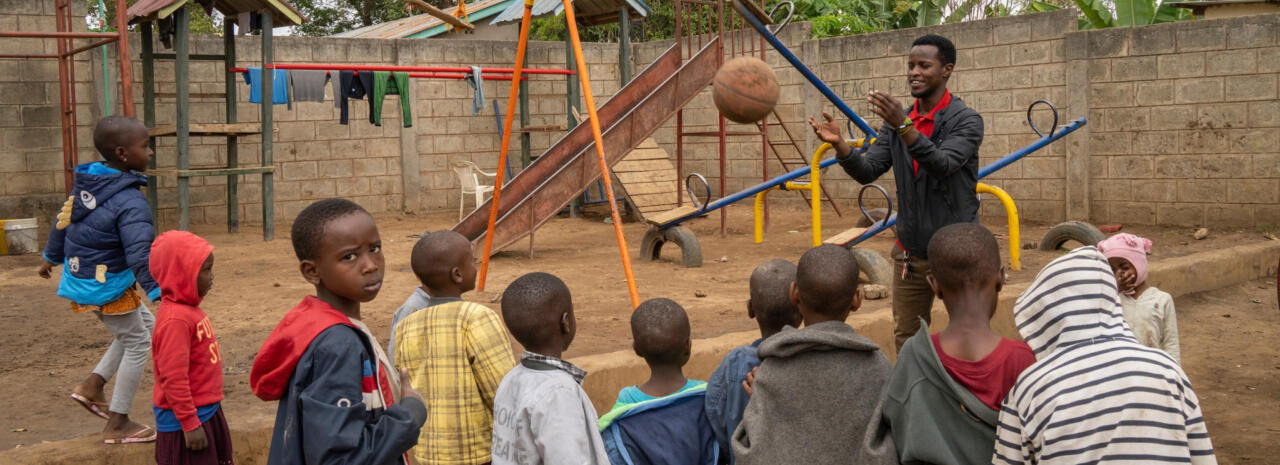
Making the case for scaling up quality ECD in Tanzania
To support Tanzania’s efforts in expanding quality Early Childhood Development (ECD) services, Genesis, in partnership with UNICEF, developed an investment case focused on integrating ECD programmes into national development strategies.
You can read the full report here.
The case explored costing options, analysed the expected social and economic gains, and provided recommendations to advance the sector. It examined the benefits of investing in ECD over the short, medium and long term. It also investigated the architecture of public financial management that underpins ECD investments, in order to identify and address obstacles to better financing for ECD.
The findings revealed impressive benefit-cost ratios, indicating that for every Tanzanian shilling invested in ECD, the country stands to receive up to 57 shillings in socio-economic gains. This aligns with findings in the global literature emphasising that investing in young children is highly cost effective. Such investments not only catalyse progress towards the Sustainable Development Goals, but also support the realisation of basic child rights.
Read more on the report here.
Accompanying the investment case was a focus on sustaining and implementing the findings. To facilitate this, the report highlighted specific policy recommendations. These included enhancing the institutional framework around ECD, strengthening accountabilities for public allocation of funding to ECD, and scaling up interventions to broaden coverage. Critically, the report also called for the creation of an operational plan, involving all stakeholders, to chart a course towards progress in ECD service delivery and outcomes.
Tanzania is one of the fastest growing, and youngest, countries in the world. A massive 43% of the population is under the age of 14, 37% of which is under the age of 5, based on World Bank estimates.
In the coming years, Tanzania is expected to experience a “youth bulge” and stand in line for a generous demographic dividend. Capitalising on this could be critical to stimulating long-term, inclusive economic growth, in line with Tanzania’s National Vision 2025. Investing in ECD will be vital for realisation of this demographic dividend, maximising the future productivity and contribution of today’s young children.
Tanzania made a significant leap forward in prioritising ECD by becoming the first country in Eastern and Central Africa to launch a National Multisectoral ECD Programme. Set to be implemented from the financial year 2021/2022 to 2025/2026, this programme aims to support the implementation of critical ECD interventions and address the varying ECD outcomes across different regions of the country.
However, despite substantial improvements, outcomes in early childhood in Tanzania are sub-optimal. Tanzania ranks in the 10 countries with the highest number of newborn deaths worldwide, and under-5 and maternal mortality rates are higher than neighbouring countries such as Uganda, Kenya and Rwanda. Morbidity and mortality in early childhood are driven by preventable disease burdens, including sepsis, malaria and lower respiratory infections. Meanwhile, stunting affects one-third of children under 5 and only two-fifths of children receive a minimum meal frequency.
Recent data from the TDHS-MIS 2022 survey reveals differences in ECD outcomes across age groups and regions. Younger children (24-35 months) in Tanzania have a higher likelihood (57.5%) of being developmentally on track compared to older children (48-59 months) at 36.2%, suggesting challenges in maintaining developmental gains as children age. Regional disparities are also evident, with Arusha (73.1%), Kilimanjaro (69.8%) and Njombe (65.0%) showing high performance, while Rukwa (16.0%), Tabora (20.3%) and the Western zone (20.9%) lag behind. These variations point to the influence of local factors such as poverty, access to early education, health and nutrition services, and other socio-economic challenges.